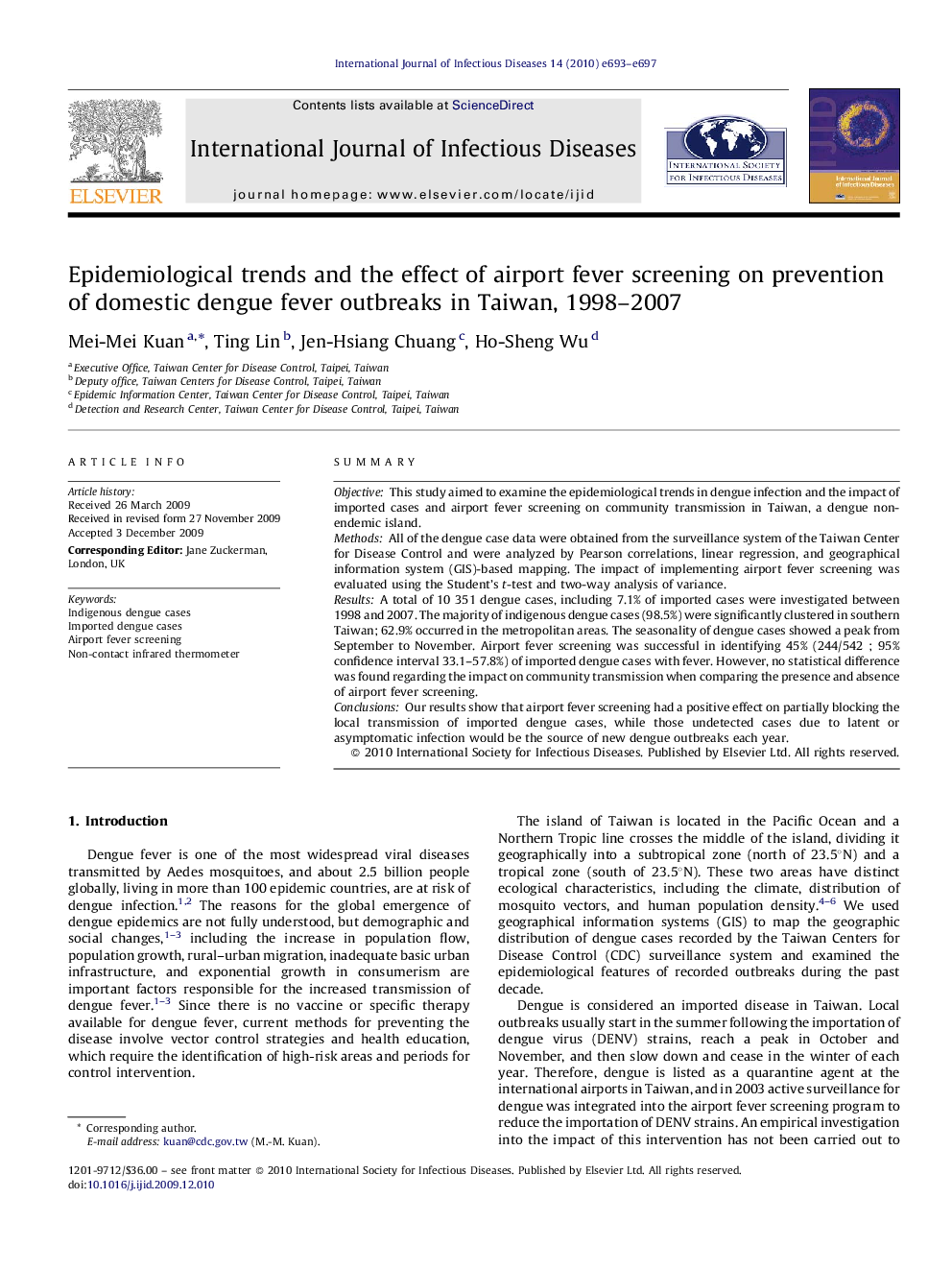| Article ID | Journal | Published Year | Pages | File Type |
|---|---|---|---|---|
| 3363246 | International Journal of Infectious Diseases | 2010 | 5 Pages |
SummaryObjectiveThis study aimed to examine the epidemiological trends in dengue infection and the impact of imported cases and airport fever screening on community transmission in Taiwan, a dengue non-endemic island.MethodsAll of the dengue case data were obtained from the surveillance system of the Taiwan Center for Disease Control and were analyzed by Pearson correlations, linear regression, and geographical information system (GIS)-based mapping. The impact of implementing airport fever screening was evaluated using the Student's t-test and two-way analysis of variance.ResultsA total of 10 351 dengue cases, including 7.1% of imported cases were investigated between 1998 and 2007. The majority of indigenous dengue cases (98.5%) were significantly clustered in southern Taiwan; 62.9% occurred in the metropolitan areas. The seasonality of dengue cases showed a peak from September to November. Airport fever screening was successful in identifying 45% (244/542 ; 95% confidence interval 33.1–57.8%) of imported dengue cases with fever. However, no statistical difference was found regarding the impact on community transmission when comparing the presence and absence of airport fever screening.ConclusionsOur results show that airport fever screening had a positive effect on partially blocking the local transmission of imported dengue cases, while those undetected cases due to latent or asymptomatic infection would be the source of new dengue outbreaks each year.
